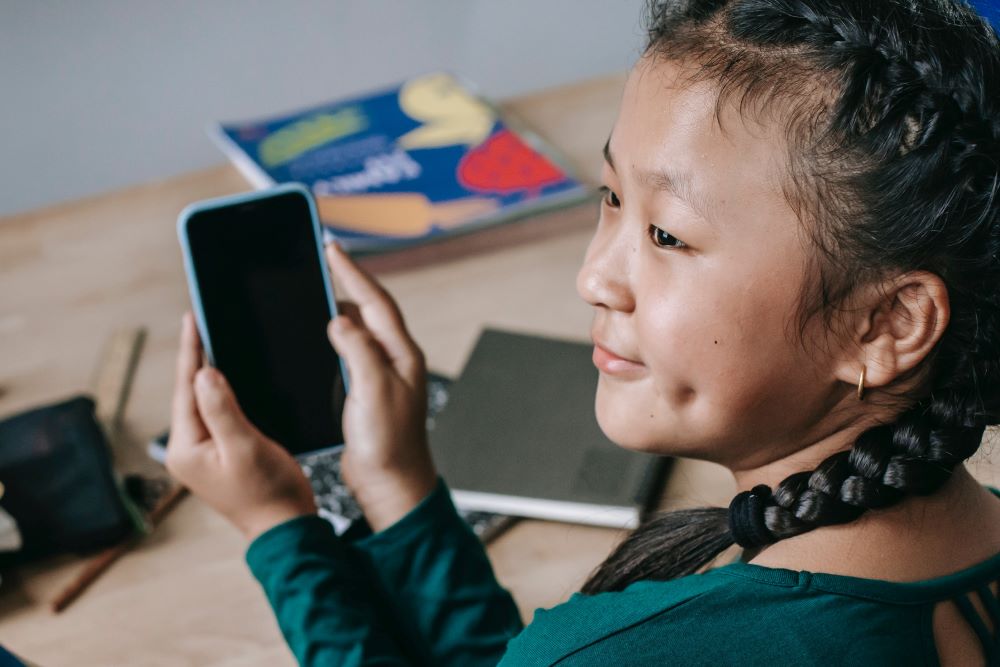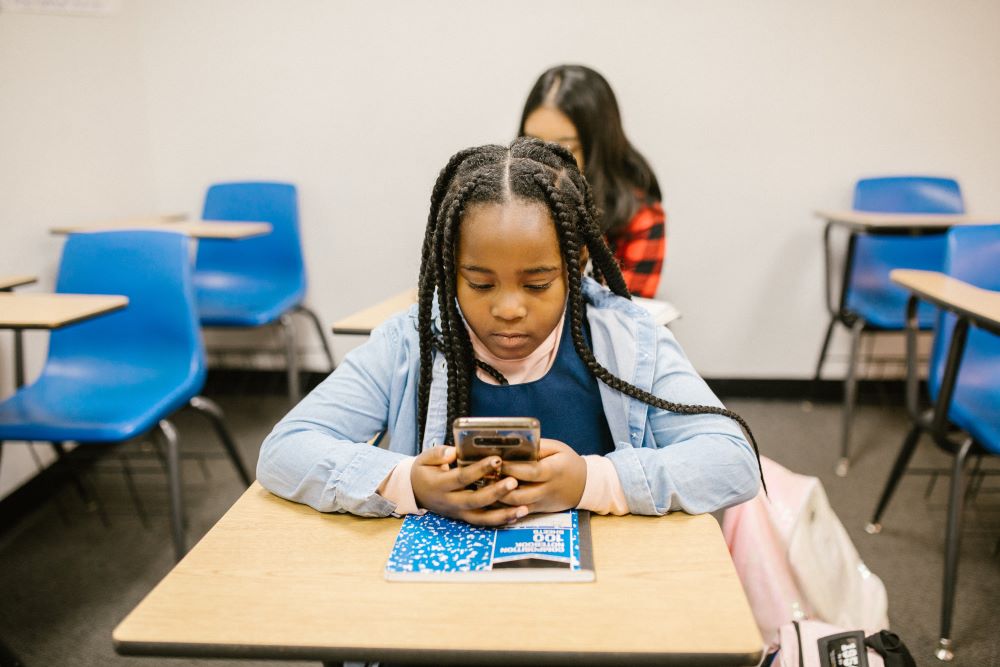Administrators are eliminating distractions by removing student phone use.
The use of phones in schools can be a major distraction for both teachers and students, leading to widespread no-phone policies. Thanks to the onset of social media and widespread use of phones by children and teens, many of today’s youth have a hard time “powering off” their smartphones – even when they’re in class. Thus, these policies are becoming necessary.
Smartphones not only help students stay connected to their friends and see how many followers they have on Instagram and other sites, but they can also be used to inform family members when they’re not feeling well or need to be picked up from school for other purposes. Thus, many parents see nothing wrong with having their students carry phones into the classroom “for emergency purposes only.”
Of course, when left unattended, students tend to abuse this policy and can try to sneak in text messages or photo shares while they’re supposed to be paying attention to their lessons. This can interfere with academic performance as these individuals miss the opportunity to retain necessary information to not only pass their classes but advance their knowledge overall.
A study conducted by the University of Texas found that students who used their phones during class scored significantly lower on exams compared to those who did not use their phones. On the flip side, a study conducted by the London School of Economics found that banning phones in schools increased student test scores by 6.4%.

Therefore, it likely comes as no surprise that school administrators who’ve struggled with having students put their phones down for years are now advocating for no-phone policies. And in fact, many districts across the United States have already implemented them.
The logic behind this is that by adopting a no-phone policy, a school can improve student academic performance. Without phones, students may be more focused and engaged in their studies. Teachers can ensure that all students have equal access to information and resources, and students may develop better study habits and time management skills without distraction.
“It’s a game-changer; it’s night and day. I saw kids’ faces again,” said Dennis Maher, an English teacher at Newburgh Free Academy in New York. The academy recently rolled out its first “no-phone” guidelines.
Jonathan Haidt, a social psychologist and author, added, “Smartphones are basically kryptonite for learning. When children have a phone in their pocket, and most schools say you have to keep your phone in your pocket, you can’t use it during class, is like saying in a drug detox clinic, ‘You can keep your heroin in your pocket, just don’t shoot up.’ If kids have access to a phone, they will text, they will check their social media, they will not pay attention the teacher or to each other in person.”
A no-phone policy eliminates temptation by ensuring students can’t scratch the itch when they’re craving some screen time. No-phone policies can also help students improve social skills. Students may develop better face-to-face communication skills and form stronger relationships with their peers by interacting without the separation of a screen. This can mean less anxiety and stress over the long term.
While some may argue that phones can be helpful for educational purposes, the potential distractions and negative impacts on student learning outweigh the benefits. By instituting no-phone policies, schools can create a more focused and engaging learning environment for students, which working to lower social anxiety by promoting in-person interactions.
Sources:
Schools across U.S. join growing no-phone movement to boost focus, mental health


Join the conversation!